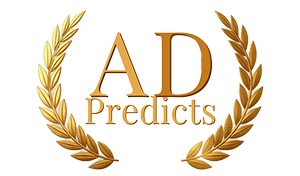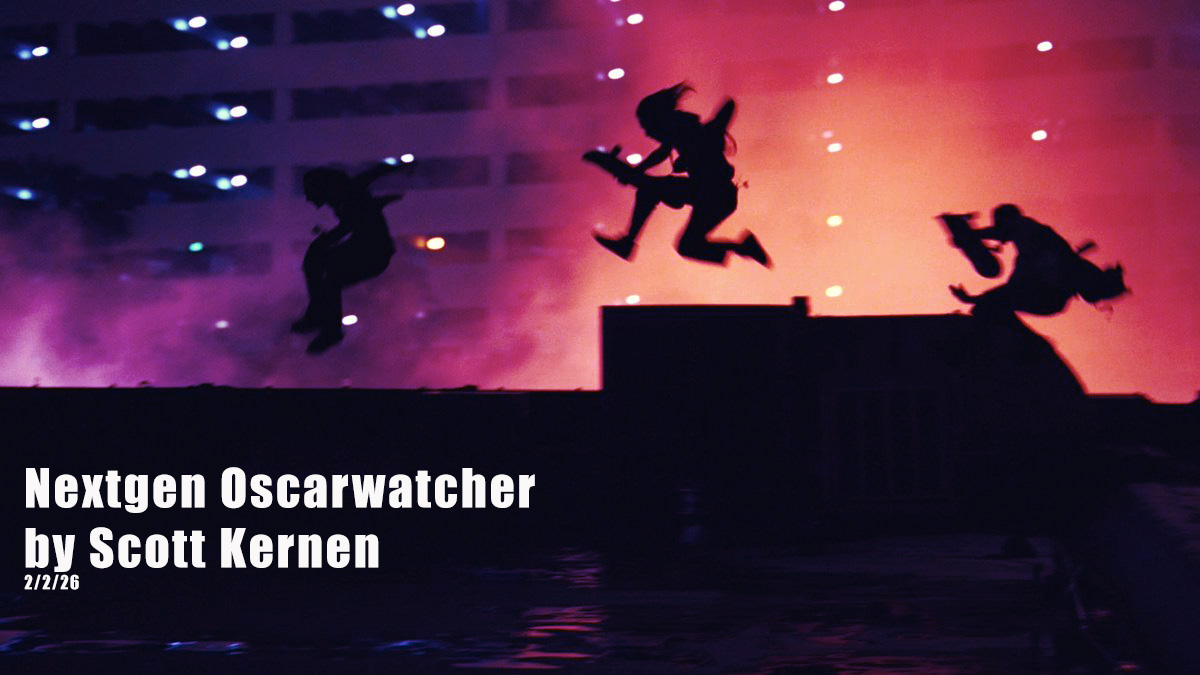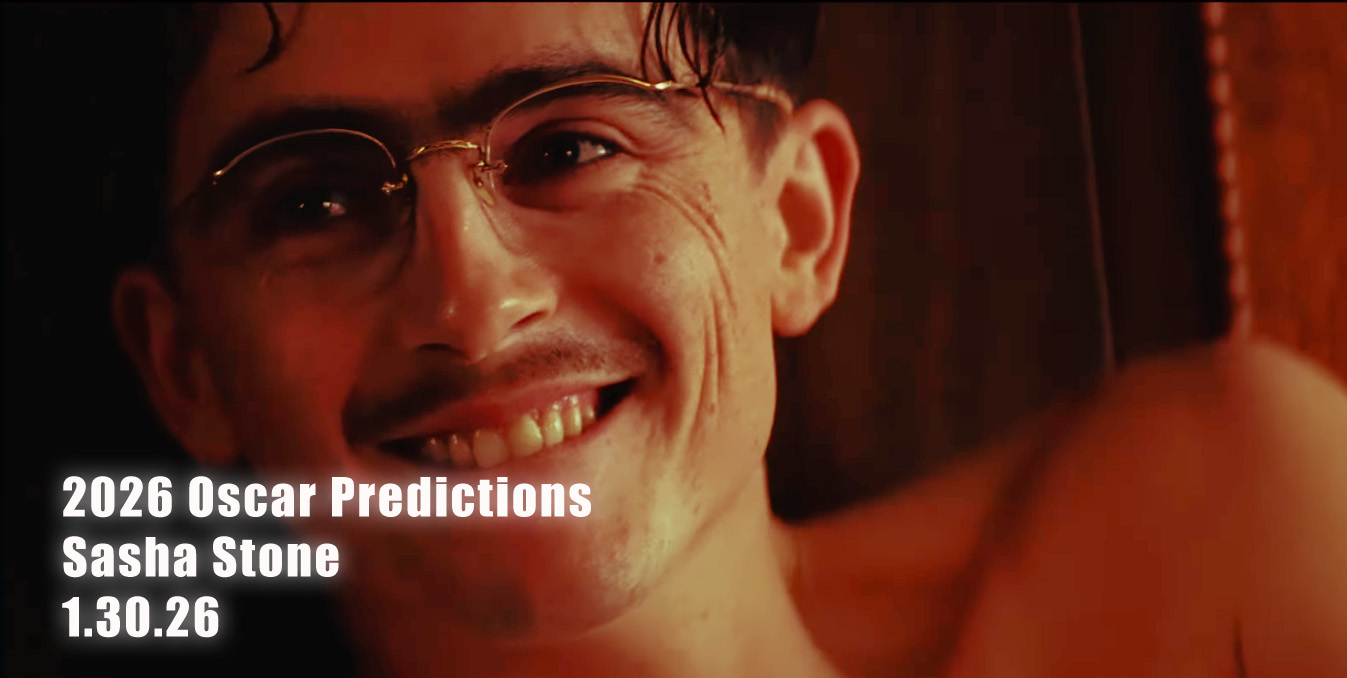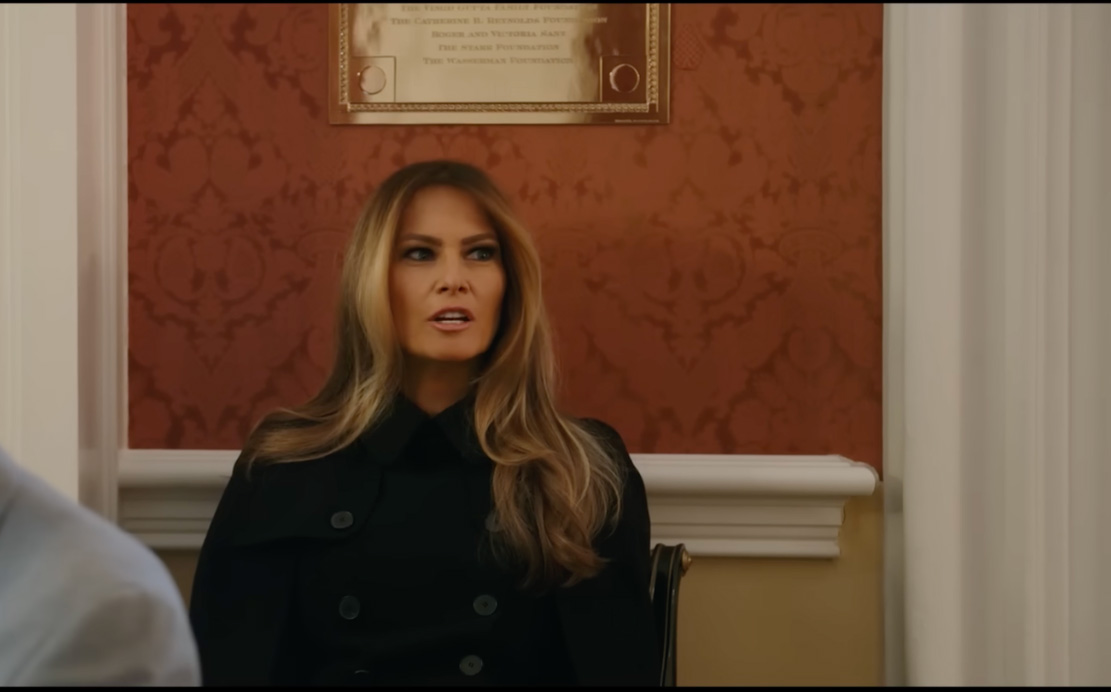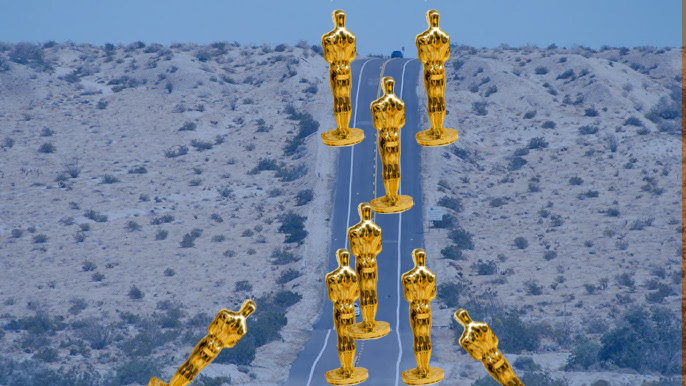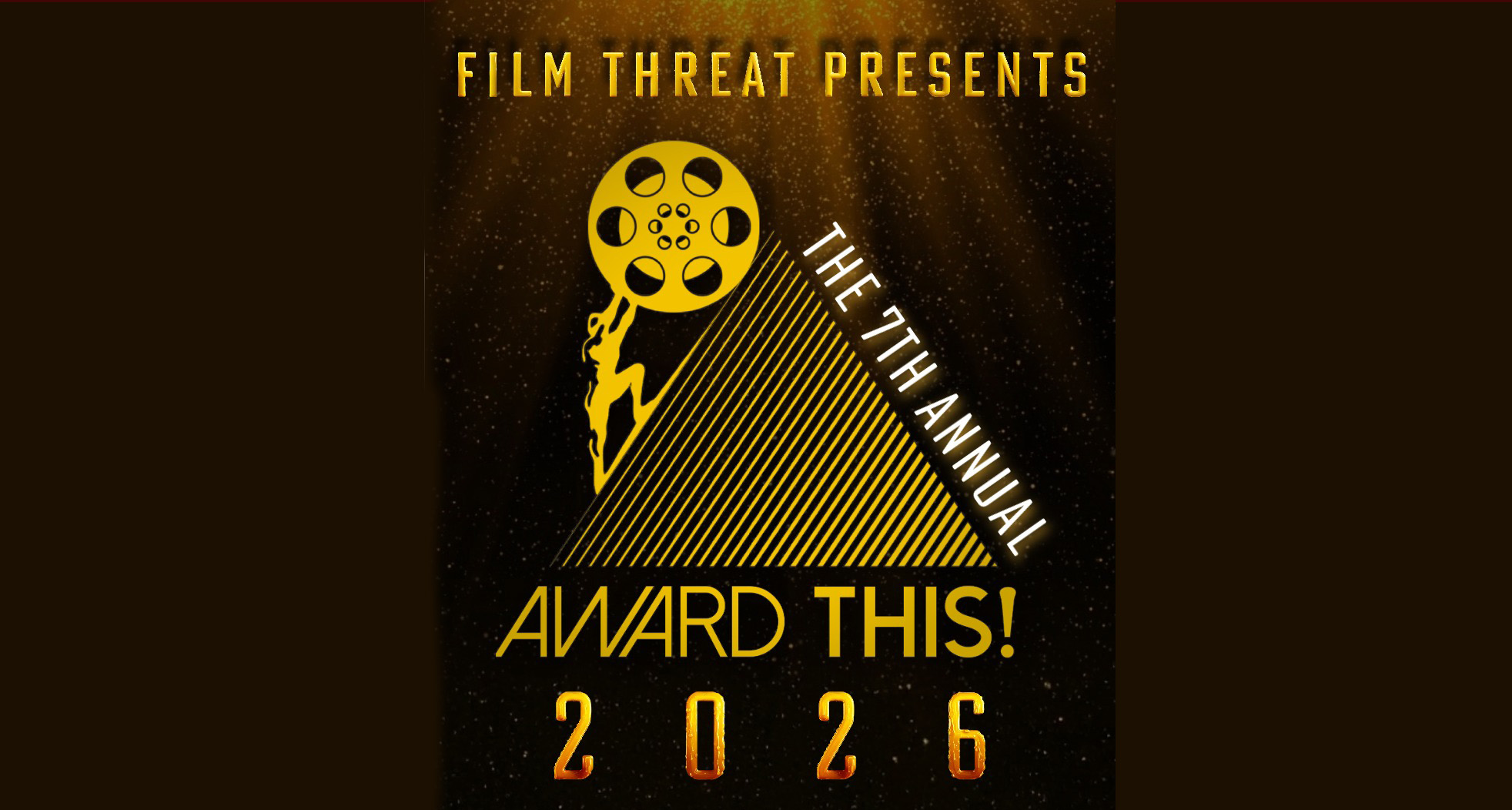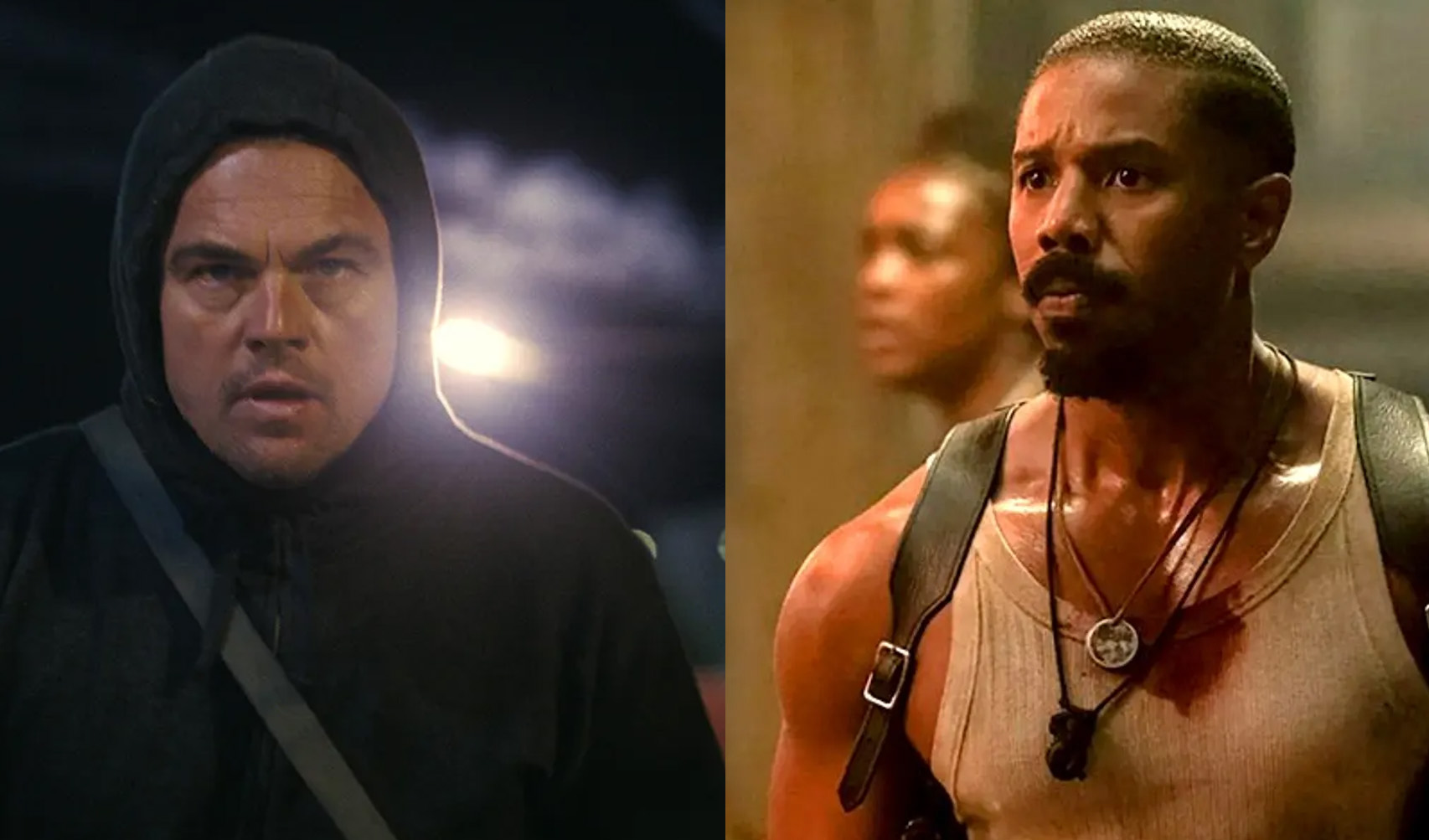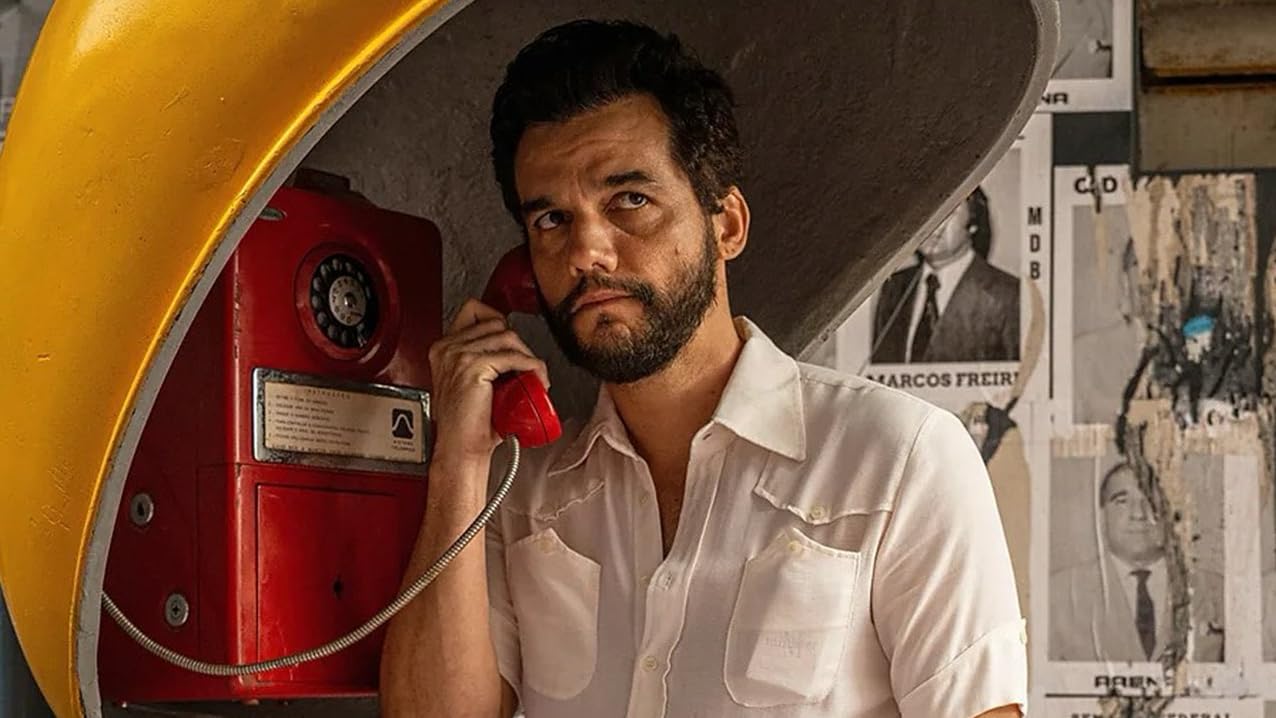How far would you go to help a complete stranger? If you saw someone who requested your assistance to get to a bus stop would you do it?
Doug Roland’s Feeling Through is a testament to what we can do as human beings. We are all capable of being kind to one another. We have been taught to be guarded and it’s been ingrained in us to mind our own business. That has been compounded after a year of isolation and lockdown and some of us feel more adrift than ever before.
In Roland’s sweet and urgent film, a young man named Tereek is looking for a place to spend the night. He sees a man, Artie, standing on a street corner with a sign explaining that he is DeafBlind and needs assistance to get to the bus stop. Tereek takes Artie’s arm and leads him to his stop and sits with him. Tereek speaks to Artie by tracing letters on Artie’s hand and Artie writes his responses on a well-worn notepad. There is a beautiful simplicity in how they communicate, and they spend a few hours together detailing their respective nights.
Feeling Through is extraordinary, both in front of the camera and behind it. Casting a DeafBlind actor in a lead role has never been done before so Roland and his team employed new casting methods to find their Artie, and he told me all about how his actors bonded. Watching the film is very emotional because of how it reminds us that no matter what you are going through or experiencing, a gentle touch can soothe you and get you to your next moment of clarity. This is such a glorious movie and it should be celebrated.
Awards Daily: I know this film is based on your own experience from August 2011. What part of this encounter always stuck with you and what propelled you to tell this story now?
Doug Roland: Feeling Through is directly inspired by a real life encounter that I had about ten years ago. The major beats of it were very similar to what happened in real life. Artemio was his name in real life, so the character’s name being Artie is obviously a nod to that. There are a lot of things that are different but the primary meeting point and ways of communication were based on my experience. Years later, it was still something very emotional for me and the thing that stuck out to me first and foremost was the spirit of this man.
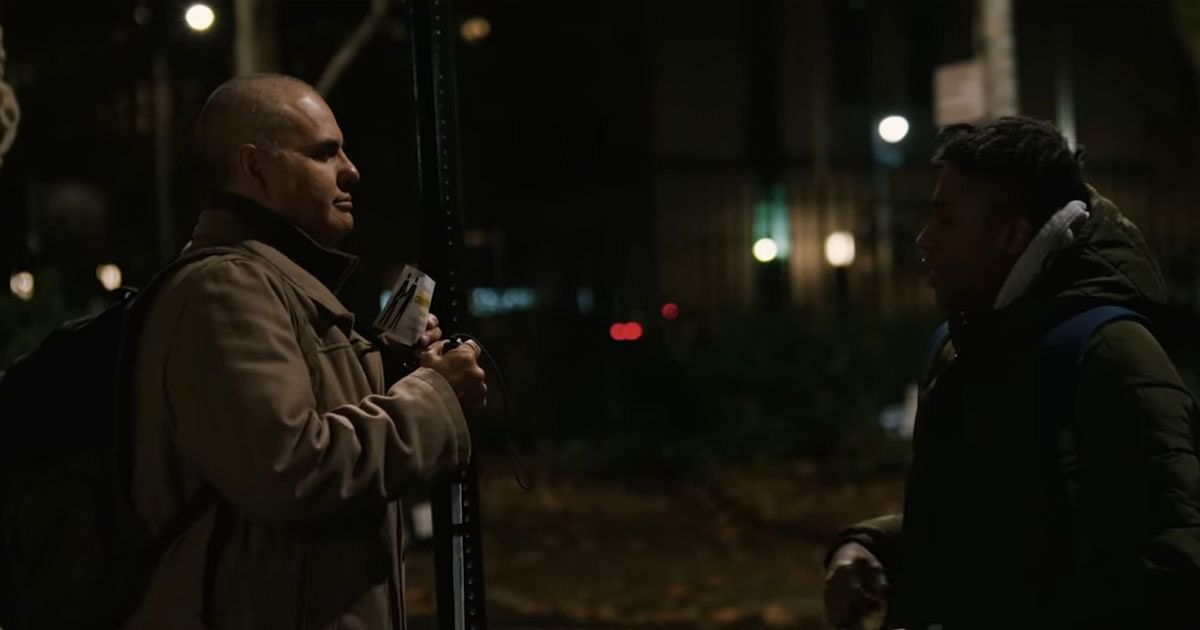 AD: Yeah.
AD: Yeah.
DR: He is someone who has this big smile that lights up a room. He was someone who, moments after tapping him on the street to let him know that I would take him to this bus stop, he took my arm in his to insinuate that he was ready. I am a lifelong New Yorker, and there is pretty rare about someone standing on a street corner at four in the morning who is so comfortable and confident taking a stranger’s arm. Think of the intimacy of that.
AD: That’s definitely a singular experience, for sure.
Moments after we met each other, we were arm and arm in the street and to communicate in such an intentional way–with me tracing letters on his palm and him writing on a notepad–is an intimate way to communicate with anyone. Let alone someone you just met. I think the investment of each exchange is a small victory. I distinctly remember that when I wrote something on his hand and he understood, he would nod and have this big smile on his face. There’s something really beautiful about how much of my life is spent small talk that doesn’t have that much resonance that having a conversation with someone where everything is imbued with importance. Lastly, it was the first time I met anyone who was DeafBlind or, frankly, the first time I thought about someone other than when I learned about Helen Keller in grade school. There were a lot of ingredients that were potent for me, and for years I would get emotional when I told this story. Right after the experience I wrote a short story. A year later I turned it into a script, so that was nine years ago? And that was pretty close to what we ended up filming. I reworked it, but at the time I wrote it, I recently moved to LA, and I didn’t think I had the ability to do it justice.
AD: Were you always thinking about it?
DR: Yeah, it was always burning in the back of my mind as I worked on other things. About three years ago, I was sitting in a coffee shop at, quite frankly, a personal low for me, I was cleaning up my desktop on my computer and I instantly, with no hyperbole, I knew I had to make it right now. It was a gut feeling. No embellishment here, within seconds, I Googled DeafBlind organizations and called the first result that popped up. This gentleman picked up, and I hadn’t thought as to why I am calling. I literally said, ‘I don’t know why I’m calling you, but I have a story to tell you. Once I’m done with this story, I think it will be more clear.’ I told him what happened, and I told him how I wanted to cast a DeafBlind actor, and he directed me to the Helen Keller National Center.
AD: What was the casting process like since casting a DeafBlind actor has never been done
DB: I knew from the start that I wanted to cast a DeafBlind actor, but there were really no ways for me to seek that out.
AD: So this must have felt like a different and groundbreaking process.
DB: It was so different. Also, I didn’t know where to start. I wasn’t going to call up a casting director. My first instinct was to reach out to organizations, and I partnered with the Helen Keller National Center throughout this entire process. My co-nominee, Sue Ruzenski, who is the CEO of the parent company, Helen Keller Services. She had never made a film before, and now she’s an Academy Award nominee which is wild.
AD: That’s so awesome.
DR: Very fortunately, with working with HKNC, specifically for casting Artie, I worked with Chris Woodfill who is the executive director of Helen Keller National Center. He is DeafBlind himself and he reached out to a number of people across the country and he spearheaded that casting. He found people who might be a good fit–half were in person and half were remote. The irony of all this is that in our supportive documentary, Connecting the Dots, we had cameras in the room when we first met Robert Tarango, but he was not on our list. He worked in the kitchen at Helen Keller National Center and someone in the room thought he would be a good fit. He was thrown into this room with a stranger and a camera and he immediately started cracking these hilarious jokes about becoming a huge movie star and needing time off from the kitchen. I knew he was our guy.
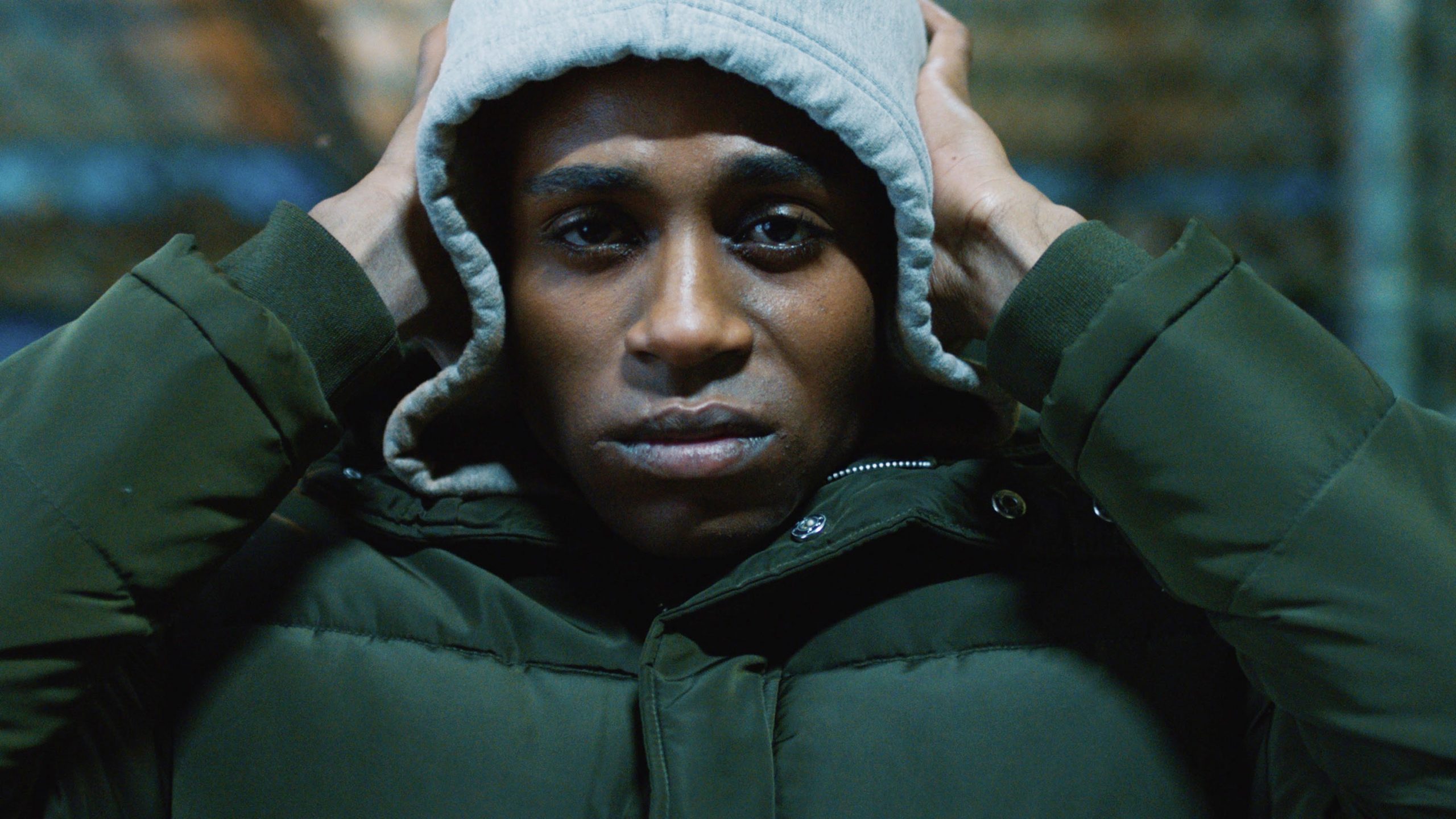 AD: There is something about the image you captured of him standing on the street corner that is very memorable. Something about the warmth that radiates from him. There are really two issues at play here. How long do you think Tereek has been homeless?
AD: There is something about the image you captured of him standing on the street corner that is very memorable. Something about the warmth that radiates from him. There are really two issues at play here. How long do you think Tereek has been homeless?
DR: That’s a good question. We certainly leave it open-ended to give the audience the opportunity to fill that in their own backstories and their understandings of who he is and where he is headed. In my mind, I didn’t categorize him as homeless in a sense that he had nowhere to stay right now. I crafted this backstory of him having issues at home and him jumping around from spot to spot as he is trying to figure out what he can do and what his options are. He wasn’t as self-identifying as homeless as much as treading water. He’s been doing it for a little bit, but he’s not looking that far ahead. Let him figure out tonight and then he will figure out what to do later on. He’s more into that process. That’s how I conceived it, but I will admit that I love when people bring those ideas to the story.
AD: There are a lot of details brought in from the script and the performance that make it really compelling to try and figure out. Your two actors are so great together. Tell me about capturing the chemistry between Robert and Steven Prescod. They are so easy to watch.
DB: I was really fortunate to cast Robert as Artie and Steven as Tereek not just because they are hard working but they both have a beautiful heart and a capacity to connect. We really only had one rehearsal prior to the shoot.
AD: Wow, really?
DB: Yeah. They made a instant connection the first time they met. Steven was really open to working in a different situation than he had been used to before and Robert was really excited to dive into this for the first time. They hit it off. Steven, because of Robert’s access and communication needs and the efficiency with which we needed to move on set, we employed a number of communication tactics. We employed something called haptics which is touch communication on someone’s back or shoulder to communicate things. Steven ended up being part of the communication team to let Robert when we were about to roll or when we were finished or if he needed to face a different direction. He kind of learned that too and it created more a connection. It was one of those great fortunes that they aren’t just two great human beings but they found a really true affinity with one another.
AD: That’s very apparent. From a technical standpoint, is there a reason for the different kinds of fonts that are displayed on screen? One looks handwritten and the other looks typed.
DR: Yeah. We thought a lot about this. That first moment where Tereek is writing on Artie’s hand, it’s written out in a traced how he traces with his finger because I thought it was important to establish the time, care, and specificity that one needs to communicate that way. When we had that lengthy scene of them communicating, it was more about efficient communication of what is being said to one another. That’s why it was more kind of a standard text that drew less attention to itself. The one moment where Artie voices something, it was an open caption to make sure it was clear. That last moment where Artie is writing back to Tereek is again to kind of foster a little more intimacy since it’s their last exchange and last moment. It was definitely one of those things that I wanted to make sure it was in service to the story and not draw too much attention to it.
AD: I have noticed a lot of passionate responses to your film. What has been the best reaction for you?
DR: I’ll give you two answers. I’m ultimately most proud of the universal resonance that it’s had and it’s meant a lot to the DeafBlind community and people who have never met someone who is DeafBlind and everyone in between. It’s not about DeafBlindness but about human connection despite the differences that we might have. The first thing that comes to mind is that prior to submitting to film festivals, we wanted to bring it to the community first. We created a fully accessible screening event called The Feeling Through Experience which included this film, our supporting documentary, Connecting the Dots, and a panel discussion with a Q&A with the DeafBlind community. We did 14 of those across the country where we had up to 50 interpreters and support staff at a single screening to provide one-to-one accessibility to anyone who was DeafBlind or blind or low vision who attended alongside the general public.
AD: I didn’t read about that. That’s awesome.
DR: Those screenings were so amazing for so many reasons, but the reason I bring it up is that the first person to stand up at our first screening who was a gentleman who was DeafBlind and had the entire film signed into his hand. You hope as a filmmaker that you portray the community in a way that they can stand behind it. He said he loved the film and he was happy for the representation but he also said something that was integral to what we are doing. He said that a lot of people assume that because he is DeafBlind that he wouldn’t like to go to the movies. He loved the experience and come out with the shared experience. That stood out for me. On the other of the coin is that we’ve had so many people who aren’t part of the DeafBlind community be moved by this. One message that I’ve received that is emblematic of many that we’ve received is that you can imagine that it’s easy how many people are hurting right now after this year.
One sticks out to me and I am getting emotional thinking about it. Someone said in very clear terms that they were considering ending their life or they were in that mind space and the film really helped them turn the corner. These two characters’ abilities to put aside their own challenges and find meaningful connection. You can never be prepared for reactions that way but the fact that we have heard from many people that it was something that they needed. We’ve been really blessed to share it when it’s been truly needed for so many people.
Feeling Through is available to stream at the link below. The supporting documentary, Connecting the Dots, is available to watch on FeelingThrough.com.




